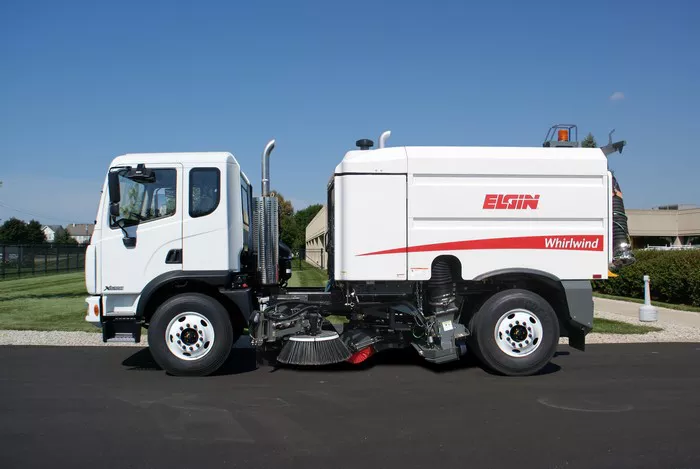Street sweepers play a crucial role in maintaining the cleanliness and safety of urban environments. From bustling city streets to suburban neighborhoods, these specialized vehicles work tirelessly to remove debris, dirt, and pollutants from road surfaces. Understanding what street sweepers are, how they operate, and their importance in urban infrastructure is essential for both city planners and the general public.
What is a Street Sweeper?
A street sweeper is a heavy-duty vehicle equipped with mechanical brushes, suction systems, and water jets designed to clean road surfaces. These machines come in various sizes and configurations, ranging from compact models for narrow streets to large trucks for highways and industrial areas. Street sweepers are typically operated by municipal authorities or contracted cleaning services responsible for maintaining public infrastructure.
Types of Street Sweepers:
1. Mechanical Sweepers: These sweepers use rotating brushes to sweep debris and dirt from the road surface into a hopper for collection. Mechanical sweepers are commonly used for general street cleaning in urban and residential areas.
2. Vacuum Sweepers: Vacuum sweepers employ powerful suction systems to remove debris, dust, and smaller particles from roads. They are particularly effective for cleaning streets with heavy foot traffic and areas where fine dust accumulation is a concern.
3. Regenerative Air Sweepers: These advanced sweepers use a combination of mechanical sweeping and high-pressure air jets to dislodge and collect debris. Regenerative air sweepers are highly efficient and can handle a wide range of debris types, making them suitable for various cleaning applications.
4. Waterless Sweepers: Waterless sweepers utilize innovative technologies such as electrostatic or magnetic systems to attract and capture debris without the need for water. These environmentally friendly sweepers are gaining popularity in areas where water conservation is a priority.
How Street Sweepers Work:
Street sweepers operate through a combination of mechanical action, suction, and sometimes water or air pressure. Here’s a brief overview of the typical operation of a street sweeper:
1. Preparation: Before starting the sweeping process, the operator inspects the vehicle to ensure all components are functioning correctly. This may include checking brushes, suction systems, and any water tanks or spray nozzles.
2. Sweeping: The sweeper begins by driving along the designated route, activating the mechanical brushes or suction systems to collect debris from the road surface. Depending on the type of sweeper, water or air jets may be used to moisten the road and help control dust.
3. Collection: As the sweeper moves forward, debris is swept or vacuumed into a hopper or collection bin mounted on the vehicle. Some sweepers may have additional filtration systems to trap fine particles and prevent them from being released back onto the road.
4. Disposal: Once the collection bin is full, the operator either empties it at a designated disposal site or transfers the debris to a larger waste management vehicle for proper disposal. It’s essential to follow environmental regulations and disposal guidelines to minimize the impact on the surrounding ecosystem.
Importance of Street Sweepers:
Street sweepers play a vital role in maintaining the cleanliness, safety, and aesthetic appeal of urban environments. Here are some key reasons why street sweepers are essential:
1. Reduce Pollution: By removing debris, dust, and pollutants from road surfaces, street sweepers help reduce air and water pollution. This is especially important in densely populated areas where vehicle emissions and runoff can contribute to environmental degradation.
2. Prevent Drainage Issues: Accumulated debris on streets can block storm drains and culverts, leading to flooding and water runoff problems during heavy rainfalls. Street sweepers help prevent these drainage issues by keeping roads clear of debris and allowing water to flow freely.
3. Enhance Safety: Clean streets are safer streets. Removing debris, leaves, and other obstacles from roadways reduces the risk of accidents and injuries for pedestrians, cyclists, and motorists. Street sweepers also play a crucial role in maintaining visibility by clearing away dirt and dust that can obscure road signs and markings.
4. Preserve Infrastructure: Regular street sweeping helps extend the lifespan of roads and pavement by reducing the buildup of abrasive materials that can accelerate wear and tear. By keeping roads clean and free of debris, street sweepers contribute to the longevity and durability of urban infrastructure.
FAQs
Q1. How often are streets typically swept?
Answer1: The frequency of street sweeping varies depending on factors such as traffic volume, weather conditions, and local regulations. In most urban areas, main roads and commercial districts are typically swept more frequently, often several times per week, to maintain cleanliness and safety. Residential streets may be swept less frequently, usually on a monthly or bi-monthly basis.
Q2. Are street sweepers environmentally friendly?
Answer2: Yes, modern street sweepers are designed with environmental sustainability in mind. Many sweepers feature advanced filtration systems to capture and contain debris, preventing it from entering stormwater drains and polluting waterways. Additionally, some sweepers use alternative technologies such as waterless cleaning systems or electric powertrains to minimize environmental impact further.
Q3. What can residents do to support street sweeping efforts?
Answer3: Residents can play a proactive role in supporting street sweeping efforts by following these tips:
1. Avoid littering and properly dispose of trash in designated bins.
2. Keep sidewalks clear of debris and vegetation to facilitate sweeping.
3. Adhere to parking regulations to allow sweepers unrestricted access to curbsides.
4. Report any significant debris buildup or maintenance issues to local authorities for prompt attention.

